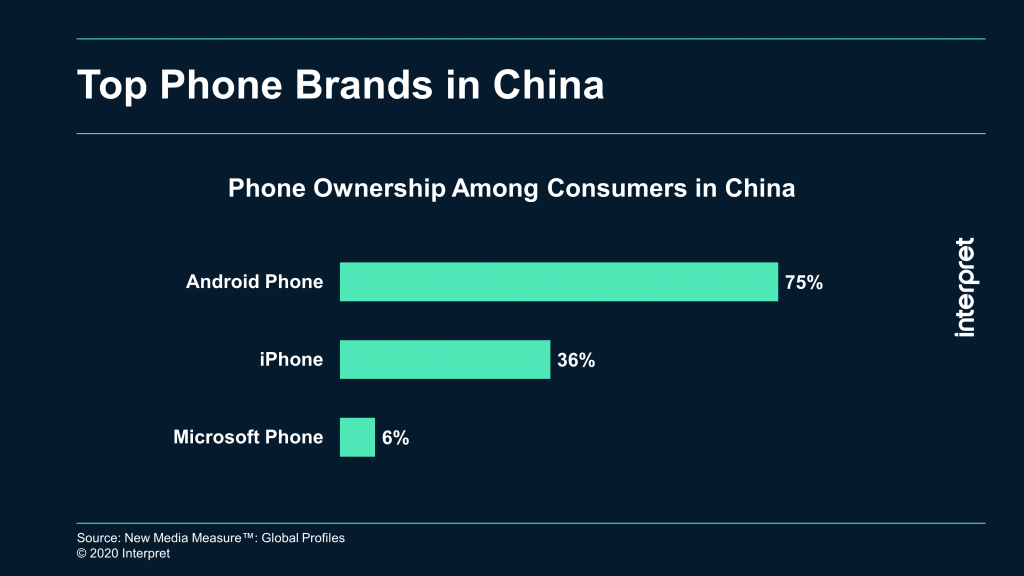The White House, citing a threat to national security, recently signed an executive order banning US transactions with WeChat starting on September 20th. WeChat is truly ubiquitous with 1 billion users worldwide, and in its native China the app has become a vital form of communication for most people (over 80% use the app, according to Interpret’s NMM: Global Profiles®). Even in the US, WeChat has averaged 19 million users in the past three months. As Fortune notes, the app is one of the few that can bridge the technological divide between the US and China.
Given how irreplaceable WeChat has become for many, a ban on the app could effectively force numerous smartphone users to give up on iPhone and pick up an Android smartphone instead. “If Apple removes WeChat from its China App Store, I will switch to Huawei,” Chen Xixiang, an iPhone user from Chongqing city who has bought a new Apple handset every year since 2008, told the Nikkei Asian Review.
Apple is very much the underdog in the Chinese market, with about a third of consumers purchasing iPhones, according to Interpret data. Conversely, 75% of Chinese consumers currently own an Android phone, and if this WeChat ban goes into effect, that number is likely to rise. The financial ramifications for Apple could be steep as well, given that almost a fifth of the company’s revenues came from China last year. It should be noted that while Google Play is not available in China, Android users have regularly been able to download WeChat from other channels – ones that the US government would have no control over.
The United States Commerce Department has 45 days to explain the scope of the ban and plans for enforcement. While Apple is the biggest company to possibly be impacted, other giants like Nike, Costco, and Procter & Gamble do frequently advertise within WeChat to Chinese consumers.






